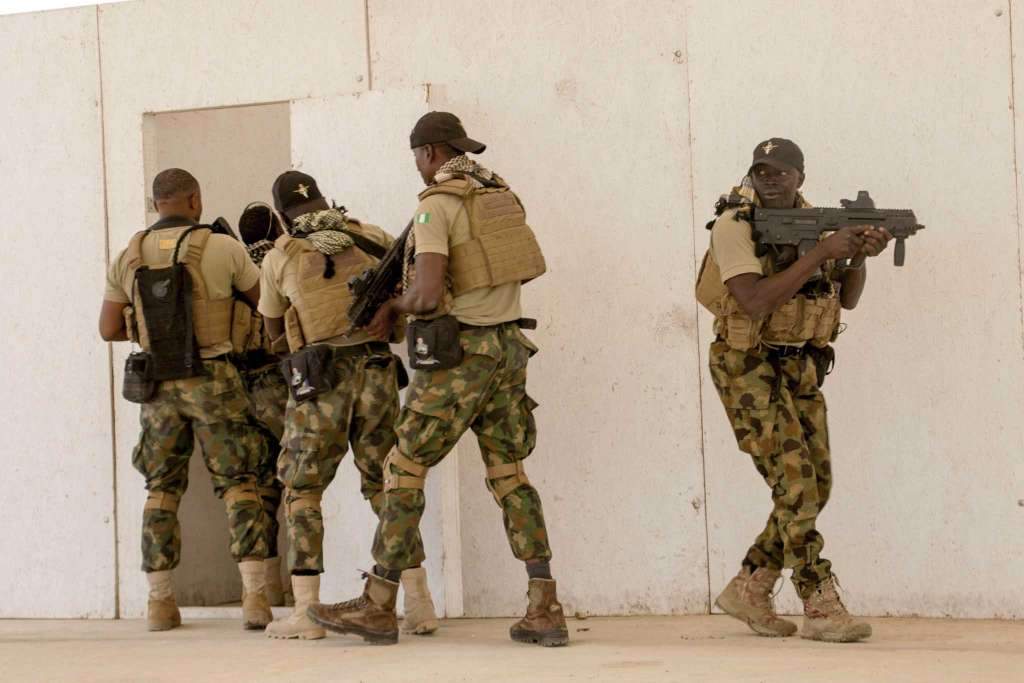Extremists see global chaos from virus as an opportunity

Both the Islamic State group and al-Qaida see the coronavirus as a threat, but some of their fighters also see the upheaval from the pandemic as an opportunity to win over more supporters and strike harder than before.
Messages from the Islamic extremist groups show concern about the virus mixed with bravado, asserting that it is punishment for non-Muslims while also urging followers to repent and take care of themselves.
Al-Qaida suggested in a statement Tuesday that non-Muslims use their time in quarantine to learn about Islam. But in a sharp commentary in its al-Naba newsletter in mid-March, IS urged followers to show no mercy and launch attacks in this time of crisis.
In a commentary Tuesday, the International Crisis Group warned that the pandemic threatens the global solidarity that is key to fighting extremists, “allowing the jihadists to better prepare spectacular terror attacks.”
Though analysts said it was too soon to say which attacks can be blamed on militants exploiting the coronavirus, Islamic extremists in late March carried out their deadliest assault yet against the military of Chad, a significant contributor to Africa’s growing counterterrorism efforts, killing at least 92 soldiers near the border with Nigeria and Niger.
In Egypt, two military officials reported a spike in IS attacks in March in the restive northern part of the Sinai Peninsula. They spoke on condition of anonymity because they were not authorized to brief the media.
While Syria and Iraq have seen no uptick in attacks by IS since the virus spread there, the pandemic has prompted the U.S.-led coalition to halt training activities in Iraq amid a planned pullout from several bases.
There are signs elsewhere that the U.S., British and other militaries are pulling back because of the virus, leaving a possible opening for the extremists.
That’s a danger in Africa’s hot spots of the Sahel, the Lake Chad region and Somalia, where the U.S. military already worried allies in recent months by contemplating cuts to focus on threats from China and Russia.
“Any state that was interested in pulling back in Africa will take the opportunity to do so,” said Clionadh Raleigh, executive director of the Armed Conflict Location & Event Data Project, which tracks extremists’ activities worldwide. “That will be unbelievably bad.”
A U.S. Africa Command spokeswoman, Lt. Christina Gibson, told The Associated Press that “while the size and scope of some AFRICOM activities have been adjusted to ensure the safety and protection of forces — both U.S. and partner nation — our commitment to Africa endures.” She did not give details but said about 5,200 forces are on the continent.
The British army mission in Kenya, which provides counterterrorism training and other skills, this week announced that all army families are returning to the U.K. because of the virus.
But France’s largest overseas military mission, Barkhane in West Africa’s sprawling Sahel region south of the Sahara Desert, is keeping its 5,100 troops there, the French Defense Ministry said.
Four French soldiers with Barkhane have tested positive for the coronavirus, a spokesman said Thursday, adding that operations have not been affected. They were the first in the mission to be infected.
African military units, already stretched thin and under attack, are likely to take protective measures as the virus threatens their ranks.
In Nigeria, which has struggled against the Boko Haram extremist group and an assertive IS-linked offshoot, the military has called for suspending much of its activities including large gatherings and training.
A leaked memo signed by Nigerian army's policy chief says its vehicles might have to be used for mass burials or transferring the sick to hospitals.
While security forces are targets, under-guarded prisons could be too, said Laith Alkhouri, a counterterrorism adviser who researches extremists in West Africa. Both IS and al-Qaida-linked fighters have turned the Sahel into Africa's most urgent extremism crisis, and even have engaged in some unprecedented cooperation.
Their fighters are likely to exploit the pandemic by accusing governments of mismanaging the crisis to try to win popular support, he said.
Some extremist groups are showing signs that, like the rest of the world, they are trying to understand the coronavirus and respond.
In Somalia, the al-Qaida-linked al-Shabab held a rare five-day meeting of its leaders in March that discussed the virus. In a communique, the group recognized its “emergency threat” to the world, including Muslims.
An al-Shabab spokesman later told the AP it was too soon to comment on whether the group would heed a U.N. plea to halt attacks, which have continued, or whether it would allow health workers access to areas it controls.
In Afghanistan, the Taliban have gone even further, putting out videos on disinfection and photos of its fighters handing out face masks and soap. It also has offered security guarantees to any aid group assisting victims of the virus or helping to stop its spread.
Taliban spokesman Zabihullah Mujahed told the AP that “if, God forbid, the outbreak happens in an area where we control the situation, then we can stop fighting in that area."
Photo: Cheikh A.T. Sy, AP -- In this Feb. 18, 2020, file photo, Nigerian Navy Special Boat Service troops exercise under the supervision of British special forces during U.S. military-led annual counterterrorism exercise in Thies, Senegal. Both the Islamic State group and al-Qaida see the global upheaval caused by the new coronavirus as a threat but also as an opportunity to strike harder than before, asserting that the virus is punishment for non-Muslims while also urging followers to repent and take care of themselves











